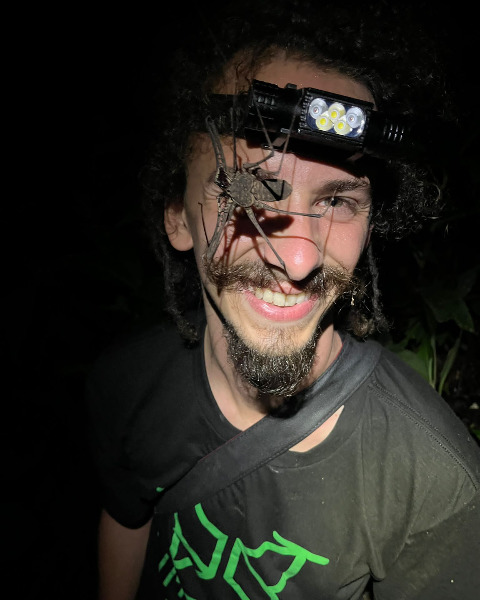Student 10-Minute Presentation
Plant-Insect Ecosystems
Student
Student Competition
Grad 10-min Competition: P-IE, Behavior
Nectar chemistry alters plant fitness by manipulating pollinator behavior
Monday, November 11, 2024
11:42 AM - 11:54 AM MST
Location: Phoenix Convention Center, 122 C, PCC

Ari Grele (he/him/his)
PhD candidate
University of Nevada
Reno, Nevada
Lora Richards
Assistant Professor
University of Nevada
Reno, Nevada
Presenting Author(s)
Co-Author(s)
Although typically considered pollinators, many nectarivorous insects do not benefit the plants they feed on by transferring pollen. These insects may be true nectar larcenists, which rob nectar by damaging the flower, or effective nectar robbers which access nectar through traditional routes but fail to transfer pollen in the process. Plants manipulate nectarivores through physical and chemical pathways to improve their ability to transfer pollen to conspecifics. Specialized nectar metabolites may act to filter out low quality pollinators, or may modify pollinator behavior such as by improving pollinator memory or reducing the amount of time spent interacting with an individual flower to improve pollen transfer. Despite the prevalence of specialized nectar compounds and the ecological importance of understanding plant-pollinator mutualisms, few studies exist connecting nectar chemistry to pollinator behavior and plant fitness in the field. Here I present research on the role of milkweed (Asclepias spp.) nectar chemistry and floral traits in driving pollinator visitation, foraging behavior, and plant fitness. Using over 500 hours of pollinator observations recorded over two years on two Asclepias species under treatments of chronic damage stress, we find that damage impacts floral physical traits, including floral size and phenology, and chemical traits, altering chemodiversity and floral chemotype. These trait changes directly and indirectly increase plant fitness by modifying the pollinator community visiting flowers, and by altering pollinator behavior while foraging, demonstrating the adaptive role of specialized nectar chemistry in driving plant-pollinator interactions.

.png)

